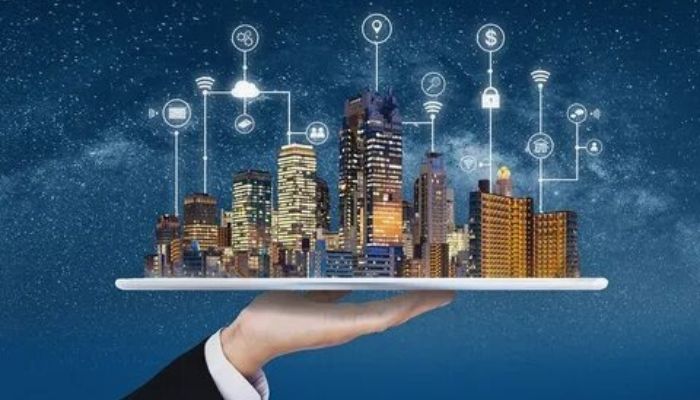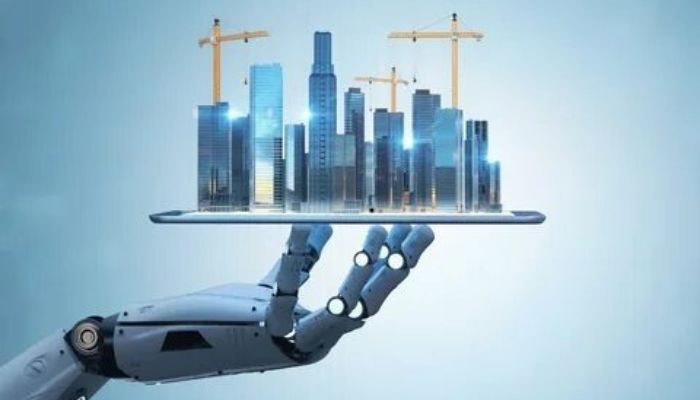Introduction
The real estate industry has always been a cornerstone of the global economy, reflecting trends in population growth, urbanization, and economic shifts. However, it’s no longer business as usual for this age-old sector. Technology is reshaping how properties are bought, sold, managed, and even constructed. From smart homes to AI-driven market insights, the integration of tech into real estate is changing the game entirely. In this article, we’ll explore the various technological advancements that are driving this transformation and what the future holds for the industry.
The Rise of PropTech
“PropTech,” short for Property Technology, refers to the digital solutions designed to address the needs of the real estate sector. This emerging field combines innovative technologies like AI, blockchain, IoT, and big data to improve every aspect of property management, buying, and selling. The significance of PropTech lies in its ability to make the real estate process more efficient, transparent, and user-friendly, leading to a more seamless experience for everyone involved.
Virtual and Augmented Reality (VR & AR)
Imagine being able to walk through a property without physically being there. That’s the power of Virtual Reality (VR). VR enables potential buyers to take immersive tours of properties from anywhere in the world. This has been particularly useful during times when travel is restricted. On the other hand, Augmented Reality (AR) allows users to visualize changes they might want to make to a property, such as adding furniture or changing wall colors, all through a smartphone app. These technologies have made the home buying experience more interactive and engaging.
Artificial Intelligence and Machine Learning

Artificial Intelligence (AI) and Machine Learning (ML) are redefining how properties are searched, evaluated, and marketed. AI algorithms can analyze vast amounts of data to predict market trends, estimate property values, and even match buyers with properties that suit their preferences. For real estate agents, this means being able to target the right audience with personalized property suggestions, thus improving the overall efficiency of the process. Predictive analytics also help investors make informed decisions by forecasting which areas will see property value growth.
Big Data and Analytics
The role of data in modern business is undeniable, and real estate is no exception. Big data analytics enables industry players to analyze demographic trends, market behaviors, and customer preferences. This allows them to identify lucrative investment opportunities, optimize pricing strategies, and improve property management. With the help of data, real estate professionals can make more informed decisions, ultimately benefiting buyers, sellers, and investors alike.
Smart Homes and IoT (Internet of Things)
The concept of smart homes has been gaining traction, where everything from lighting to security systems can be controlled via smartphones or voice commands. IoT devices connect these features, allowing homeowners to automate and manage their homes more efficiently. For example, smart thermostats can learn your schedule and adjust temperatures accordingly, while smart locks provide advanced security features. The integration of IoT not only adds convenience but also improves energy efficiency, making homes more sustainable.
Blockchain and Real Estate Transactions
Blockchain technology is most often associated with cryptocurrencies, but its applications extend far beyond that. In real estate, blockchain can streamline the transaction process by making it faster, more secure, and transparent. It reduces the need for intermediaries, which can significantly cut down on time and costs. Additionally, blockchain-based smart contracts ensure that once certain conditions are met, the contract is executed automatically, reducing the risk of fraud and disputes.
Drones in Real Estate
Drones have become an invaluable tool for the real estate industry. They can capture stunning aerial views of properties, giving potential buyers a better understanding of the property’s layout and surroundings. This is particularly useful for large estates, commercial properties, and undeveloped land. Drones also make property inspections safer and more efficient, especially in hard-to-reach areas like rooftops.
Online Property Listings and Marketplaces
Gone are the days when buying a house meant driving around neighborhoods looking for “For Sale” signs. Today, most property searches begin online. Digital platforms like Zillow, Realtor.com, and Redfin have made it easier than ever to search for properties, compare prices, and even get in touch with real estate agents. These platforms also offer virtual tours, saving time for both buyers and sellers.
3D Printing and Modular Construction
3D printing is slowly making its way into the construction industry, and its potential is massive. From building components to entire houses, 3D printing could revolutionize the way we think about construction. Modular construction, where parts of a building are manufactured off-site and assembled on location, is also becoming more popular. Both methods can significantly reduce construction time and costs, paving the way for affordable housing solutions.
Digital Twins and Smart City Infrastructure
A “digital twin” is a virtual model of a physical asset, which can be used for planning and management. In real estate, digital twins can simulate how a building will function, helping architects and engineers to design more efficiently. On a larger scale, they can be used for urban planning, allowing city planners to develop smarter and more sustainable city infrastructures.
Real Estate Crowdfunding Platforms
Real estate has traditionally been an investment reserved for those with significant capital. However, crowdfunding platforms have democratized the market, allowing smaller investors to pool their resources and invest in real estate projects. This opens up new avenues for investment and makes it easier for developers to raise capital.
Sustainability and Green Technologies
The future of real estate isn’t just about tech; it’s also about sustainability. Green building technologies, such as solar panels, energy-efficient appliances, and sustainable materials, are becoming increasingly common. Technology plays a crucial role in promoting eco-friendly practices, helping to reduce the carbon footprint of buildings and encouraging more sustainable development.
Challenges and Considerations
While technology has brought about numerous benefits, there are still challenges to be addressed. Data privacy and security are major concerns, especially when dealing with sensitive information. Moreover, the digital divide means that not everyone has access to these technologies, which can lead to disparities in the market. Addressing these issues will be crucial for the continued growth and inclusiveness of the real estate industry.
Conclusion
The real estate industry is undergoing a technological transformation that is set to change the way we buy, sell, and manage properties. From AI and blockchain to drones and smart homes, the future of real estate looks more connected, efficient, and sustainable. While challenges remain, the continued integration of technology promises a brighter and more innovative future for this essential sector.
FAQs
How is AI used in real estate?
AI is used for property search optimization, predictive market analysis, and personalized property recommendations.
What is PropTech, and why is it important?
PropTech refers to technology-driven solutions that enhance real estate processes. It improves efficiency, transparency, and customer experience.
Can blockchain really make real estate transactions faster?
Yes, blockchain can speed up transactions by automating contract execution and reducing the need for intermediaries.
Are smart homes becoming more affordable?
As technology advances, the cost of smart home devices is decreasing, making them more accessible to average homeowners.
What are digital twins, and how do they help urban development?
Digital twins are virtual models of physical assets. They help in planning and managing urban infrastructures by simulating real-world conditions.




